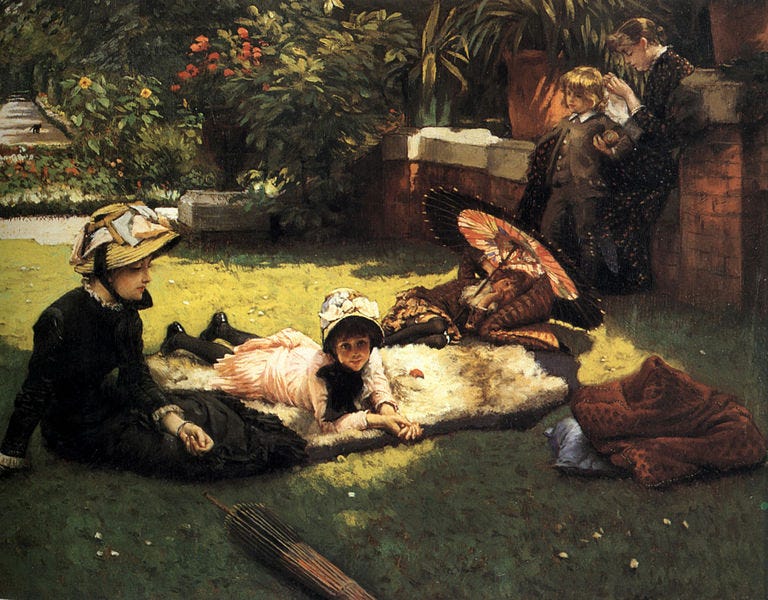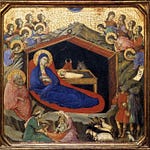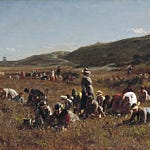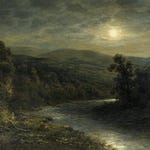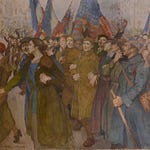In celebration of the two-year anniversary of Word & Song, we are offering a special rate on paid, gift, and upgraded subscriptions all during July. Keep an eye on your inbox for more specials & announcements.
Our Word of the Week brings a smile to my face: sunshine. I’m not sure who the first person in the world was, to call a little girl by the affectionate nickname, Sunshine. I guess it was, historically speaking, all of two minutes after Adam and Eve. We like to give girls pretty names, and that’s something you’ll find all over the world: Lily, Dawn, Rose, Honey, Sunshine. We figure they glow with innocence and light. So did the daughter of one of my colleagues today, all of three years old, with clear hazel eyes. “Do you know how old your father is?” I asked her. “He’s four!” She smiled. “And do you know how old I am?” I went on. “I’m five! So when you’re five, you’ll be as big as me! Right?” “Yes,” she said sweetly, and smiling still.
How much sunshine do you get where you live? That depends on what you mean by sunshine. If you mean daylight, that depends on what day of the year it is and where you are north or south of the equator. In the Land of the Midnight Sun, on or shortly after the summer solstice, you can watch that beacon of light and life make a great wave or loop in the sky, not quite setting in the east at what ought to be dusk and dawn right together. But that’s assuming that the skies are clear. Otherwise, would you call it sunshine? Is it sunshine, what you get peeking through a London fog? But if you mean by sunshine the light of the sun unobstructed by fog and smoke and clouds, then it’s the dry parts of the world that get the most, which is why South Dakota used to call itself the Sunshine State. South Dakota?
“Yeah, I’m tired of the big city, Mabel,” says the financier to his secretary. “I want to spend a couple of weeks basking in the sunshine and sipping a nice cool mint julep. Would you get me a plane ticket to Rapid City?”
We really do want sunshine, and not just heat. It’s sunshine that life on earth is made of. The trees and the grasses turn that sunshine into sugars, making food for all the world. See that lump of coal? It’s what it is because of sunshine: there’s quite a lot of it in one package. Our bodies make melanin to protect the skin from too much sunshine: and though fashionable English ladies in the Middle Ages and the Renaissance wanted to appear with what we’d call a peaches and cream complexion, they wanted their men to look as if they’d been outdoors enough to get that touch of bronze. When I watch films or television from the 1950’s and before, I notice that the children, both boys and girls, look different from those I meet now. You can see it, for example, in a boy’s neck or forearm or knees: the kids have been outside a lot, playing or working or both, and the girls look healthy too. Perhaps — just perhaps — a little more of the sunshine that comes from the great world outdoors might make for a little more sunshine in the soul. If Hell’s not a cubicle, it’s only the mercy of God that spares us.
Sunshine, the word, is a noun-noun compound, very common in all the Germanic languages, and not common in French, Italian, and the other Romance languages. We delight in such compounds, if they’re colorful or apt. The poets of Old English used to have fun with sticking a noun with a noun as a kind of riddle: so Beowulf sails over the hwael-rad, the whale-road, which is a lot more fun than just saying the sea, and more apt, too, since our hero isn’t any old fellow, but has the strength of thirty men in his hand-grip. The Germans call our foxglove flower der Fingerhut — the Finger-Hat, meaning thimble, which is exactly what a foxglove blossom looks like. We in English often put spaces between the words in our compounds, while the Germans don’t, and that makes some German words seem crazy and long-drawn-out, to our eyes if not to our ears: Feuerwehrverband, for firefighter brigade. But really, the languages are the same in this feature, since no matter how we spell it, we pronounce firefighter brigade as if it were a single word, a unit of meaning, with the stress here on fire and all the rest of it assuming not just a fall in stress but a fall in musical pitch, too. And we learn to do this unconsciously, when we are little children. The green house is on the corner; the people there keep a terrific greenhouse. There will be no show tonight, because the main actor is a no-show. I don’t know if there is such a thing as an ear wig, but it sure isn’t an earwig!
The sun part of sunshine has cousins all over the Indo-European map. Often it’s not n you find in it but l: Latin sol, Russian solntsye, Gothic sauil. But way back in our prehistory, some of our ancestors, who were separated from the others, began to pronounce the s- at the beginning of a word, if it was followed by a vowel and not another consonant, as an h; and this happened not just to a couple of words but all the way through the vocabulary. That is why it’s Latin sol, but Greek helios (and Welsh haul, though otherwise the Celtic languages are quite distant from Greek), and Latin sal (salt), but Greek halos (and Welsh halen) as in the elements we call halogens (the salt-makers, like chlorine and fluorine), and Latin senex (old), but Welsh hen. The -shine part, if we’d kept the verb as it was and if it developed like its close relation rise, rose, risen, would now be shine, shone, shinnen (and we’d have slide, slode, slidden, which sounds pretty expressive to my ear). Now, if you’re going to polish somebody’s boots or shoes, you want to make them shine — so you’re a shoeshine-boy, like Underdog of happy memory. But for that use of the word, we developed an ordinary past tense, so we say that Underdog shined the man’s shoes, after which he said, “Thank you, Shoeshine Boy. You’re humble and lovable.” “Bless you, sir,” says Shoeshine Boy, and he gives the man’s coin a little bite, to make sure it’s a real coin and not a plug.
And I hope that’s brought a little sunshine into your day!
Word & Song by Anthony Esolen is an online magazine devoted to reclaiming the good, the beautiful, and the true. We publish six essays each week, on words, classic hymns, poems, films, and popular songs, as well a weekly podcast for paid subscribers, alternately Poetry Aloud or Anthony Esolen Speaks. Paid subscribers also receive audio-enhanced posts and on-demand access to our full archive, and may add their comments to our posts and discussions. To support this project, please join us as a free or paid subscriber. We value all of our subscribers, and we thank you for reading Word and Song!



